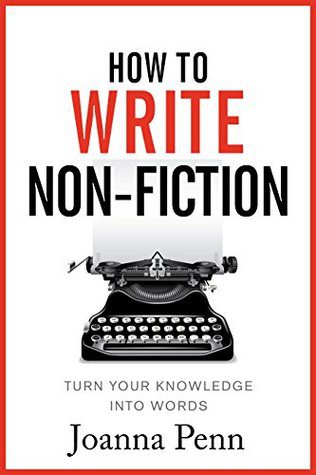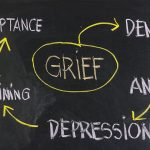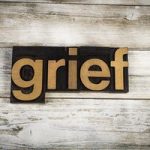Writing is a form of manipulation, and in order to do it effectively, you need to control what happens in the reader’s head. One way of doing this is to use specific details as opposed to generalities
Print | Kindle(eBook) | Audiobook
Joanna Penn’s How To Write Non-Fiction is a great book on the art of writing non-fiction. She shared great insights on starting out as a writer, dealing with doubt and fear, the business of writing, writing tools, marketing, and other strategies on turning knowledge into creative work through book writing. The book goes in-depth to writing a great non-fiction book and building a personal brand in the process.
“Writing isn’t about making money, getting famous, getting dates, getting laid, or making friends. In the end, it’s about enriching the lives of those who will read your work, and enriching your own life, as well.” – Stephen King, On Writing
Here are my favourite take aways from reading, How To Write Non-Fiction by Joanna Penn:
A non-fiction book is a powerful thing – but only if you give it your all.
Life is too short to spend time creating something you don’t care about. So write your non-fiction book to change your life, to change other people’s lives, to tell your story,
The reasons why people write non-fiction books.
(1) You have been through a particular experience, and you want to help other people going through the same thing. Sometimes the book that burns on our heart can be the most powerful, our own self-growth manifested in book form.
“The universe buries strange jewels deep within us all, and then stands back to see if we can find them.” Elizabeth Gilbert, Big Magic
(2) You want to build authority, credibility and expert status in a particular field
You want a book to demonstrate authority and thought leadership, augment your business and open doors to speaking and other business or media opportunities.
This is the ‘book as business card’ approach.
(3) You want to use non-fiction book sales as the basis of your income, so you want to write multiple books in a niche and dominate that market.
Although it’s unlikely that you will make a million and retire in launch week, some authors do make a full-time living writing only non-fiction
(4) You have an audience already and write to fulfill their needs, which often coincide with your own interests.
(5) Writing is how you work out what you think.
I often don’t know what I think about a subject until I write about it. The writing process is the way I turn my research into reality.
(6) You are deeply fascinated with a topic and want to produce a book on it.
It’s not about you
Of course, the book is all about you in that you write it based on your experience. But on another level, the book is not about you at all.
When it goes out into the world, the book is all about the reader. They read to make their life better and ultimately, they don’t care about you. They just want to improve their life or learn something from your writing, or escape their life for a while.
Connecting with your Readers
People connect with people, and they want some indication of your journey and who you are, even in a prescriptive How-To book. You can write with authority, but still be friendly and authentic. In an age of increasing automation, and particularly journalism and non-fiction written by AI bots, it’s only your voice that will help you stand out.
FEAR AND SELF-DOUBT
Writing is as much of a mind game as it is the discipline of getting words on the page. Fear and self-doubt are part of the creative process, and successful writers learn to live with them and create anyway
Self-doubt
My writing is terrible. I just can’t seem to get what’s in my head onto the page. I feel like a fraud. I’ll never be as good as X writer so I might as well give up.
Fear of failure
What if I don’t get an agent or a publisher? What if I self-publish and no one buys it? What if no one likes my book? What if I tell everyone I’m writing a book and then I never finish it? What if I don’t make any money and it’s all a waste of time?
Fear of rejection and criticism
What if an editor rips the book apart with red ink? What if I get one-star reviews? What if I get slated by the critics? What if the criticism is true and I really am that bad?
Fear of judgment
What will people think of what I write? What if they think I’m weird for writing this? What if my family and friends hate what I’ve written?
Fear of success
What if my book is a runaway success and suddenly everyone knows who I am and then trolls attack me on social media? What if my accounts get hacked, or people ask me for money?
These experiences are part of the rollercoaster creative journey, and we all go through aspects of them along the way. So you are not alone if you feel this way.
Fear is often worse than the reality
Your wonderful mind is trying to protect you. It is conjuring possible threats and helping you avoid them. But we have all faced fears only to find that they are not the monsters of our imagination.
No one is going to die if you write your book and it only sells five copies. No one is going to die if you get a one-star review. And the only person who will care if you don’t finish your book is you.
Top-down vs bottom-up writing
The ‘top-down’ approach is deciding on an area that you care about and then thinking about the audience later. This is the most common way for new authors to write, as the first book is usually based on a burning desire to share an experience.
The ‘bottom-up’ approach is looking at your target market or existing audience, and shaping the book to serve their needs. This should still relate to a topic you’re interested in and have experience with, but it intersects with a market who want it.
Write what you know – or write what you’re interested in.
Read books and take notes
As Pulitzer Prize-winning author, Cormac McCarthy, said, “Books are made out of books.” Writers are readers, or these days, maybe audiobook listeners! Reading books by other authors on the same or tangential topics will help you add to your material, prompting other ideas and giving you new directions. Originality and creativity are not often found in brand new ideas, but more in your personal take on a topic.
Social listening
You can find out what questions people have about topics by looking at hashtags on Twitter or Instagram, joining groups on Facebook, checking out sites like Quora, or looking at Google Trends or what is trending on YouTube around your niche. People are always asking questions and responding to ideas in public, so you can get ideas as well as looking at the language they use by doing this kind of social listening.
CO-WRITING A NON-FICTION BOOK
Co-writing is a great way to write a book faster as well as share the load of marketing. You will bring different areas of expertise to the book, and it may make the writing process more fun.
Writers Block
“I deal with writer’s block by lowering my expectations. I think the trouble starts when you sit down to write and imagine that you will achieve something magical and magnificent—and when you don’t, panic sets in. The solution is never to sit down and imagine that you will achieve something magical and magnificent. I write a little bit, almost every day, and if it results in two or three or (on a good day) four good paragraphs, I consider myself a lucky man. Never try to be the hare. All hail the tortoise.” – Malcolm Gladwell
All the Best in your quest to get Better. Don’t Settle: Live with Passion.



2 Comments
Pingback: 100 Books Reading Challenge 2021 – Lanre Dahunsi
Pingback: Top 30 Quotes of Writing. – Lanre Dahunsi